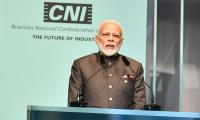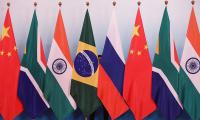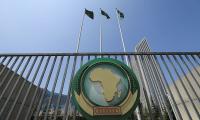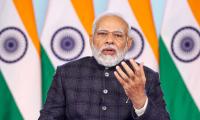BRICS vs G7: Jaishankar on Why Another Club Is Needed
India's External Affairs Minister S Jaishankar defends the BRICS grouping, questioning the need for the G7's continued existence amidst the G20. He highlights the BRICS's growing influence and its unique composition.
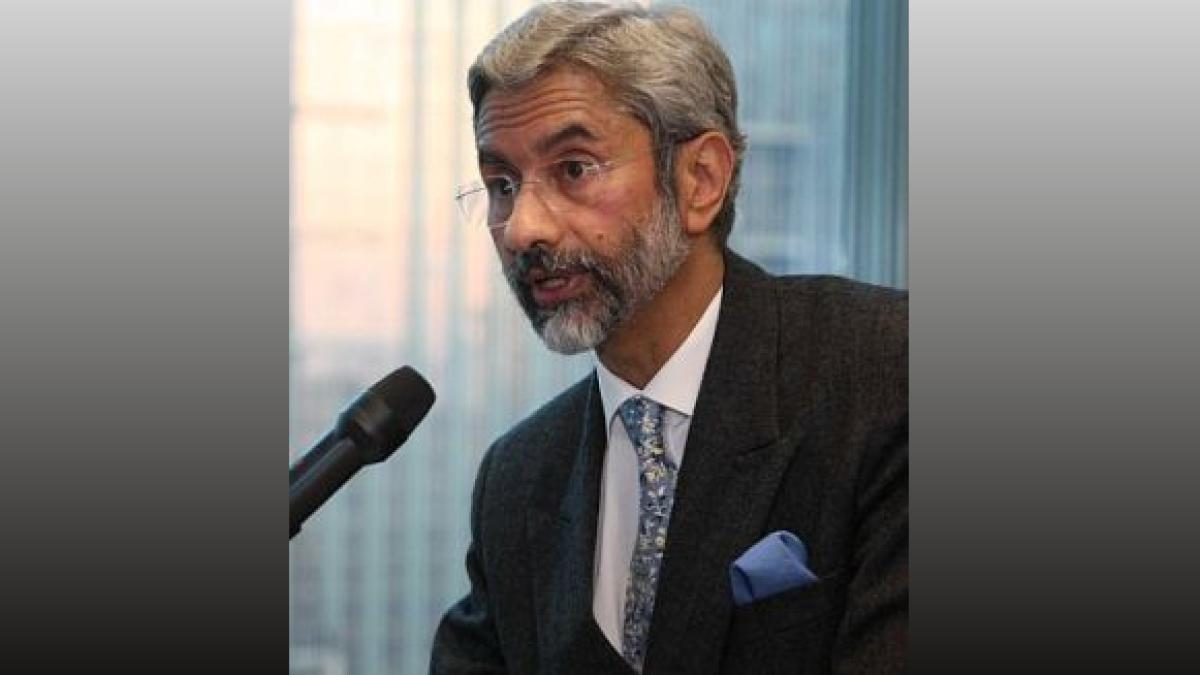
Geneva, Sep 12 (PTI) External Affairs Minister S Jaishankar on Thursday dismissed the argument that there was no need for another club called the BRICS, and said he was struck by the insecurity in the developed world over the grouping.
During a conversation with Ambassador Jean-David Levitte at Global Centre for Security Policy, a think tank, here, Jaishankar said if the G7 can exist when there is the G20, there is no reason why BRICS cannot.
Accounting for 27 per cent of global GDP, BRICS was founded by Brazil, Russia, India and China; later South Africa joined it, and in January 2024, five new countries Iran, Saudi Arabia, Egypt, UAE and Ethiopia --joined the bloc.
Why the club? Because there was another club! It was called the G7 and you will not let anybody else into that club. So, we go and form our own club, Jaishankar told to a loud cheer from the audience.
I'm still struck by how insecure the North is when you speak about the bricks. Somehow, something seems to get under people's skin, he said.
Here's an observation. There is a G20, did the G7 disband? Has it stopped meeting? No, it still continues. So, the G20 exists, but the G7 still exists. Then, why can't the G20 be there and the BRICS also exist? he asserted to another round of loud applause.
Jaishankar explained how the BRICS started and how it gained the life of its own over a period of time as others saw value in it as well.
It's actually a very interesting group, because, if you look at it, typically, any club or any group has either a geographical contiguity or some common historical experience, or, you know, very strong economic connect, he said.
Earlier, he also answered questions about the Global South, its meaning for India, if it is like non-alignment, or what does multi-alignment mean.
"The countries of the Global South, most of them are decolonised countries. Most of them are developing countries. They have today in them income levels, they have positions, they have geographies which kind of define them, he explained.
He termed it as an intuitive gathering of countries who actually know why they are in that room, and they have a feel for each other,he said.
But I would differentiate between that and multi-alignment, because the multi-alignment issue is much more a policy perspective of countries who see in their diplomacy the need to have greater freedom of choices and to exercise those choices when when required to do so by their national interest.
Stating that any country would not want any one issue or any set of partners to really exclude others, the minister said, So there is that open architecture, you can say, of the foreign policy there, and it's the countries who are more active, countries who, in a way, have to bridge these divides more often.
Earlier, Jaishankar reached here after a two-day visit to Germany.
During a conversation with Ambassador Jean-David Levitte at Global Centre for Security Policy, a think tank, here, Jaishankar said if the G7 can exist when there is the G20, there is no reason why BRICS cannot.
Accounting for 27 per cent of global GDP, BRICS was founded by Brazil, Russia, India and China; later South Africa joined it, and in January 2024, five new countries Iran, Saudi Arabia, Egypt, UAE and Ethiopia --joined the bloc.
Why the club? Because there was another club! It was called the G7 and you will not let anybody else into that club. So, we go and form our own club, Jaishankar told to a loud cheer from the audience.
I'm still struck by how insecure the North is when you speak about the bricks. Somehow, something seems to get under people's skin, he said.
Here's an observation. There is a G20, did the G7 disband? Has it stopped meeting? No, it still continues. So, the G20 exists, but the G7 still exists. Then, why can't the G20 be there and the BRICS also exist? he asserted to another round of loud applause.
Jaishankar explained how the BRICS started and how it gained the life of its own over a period of time as others saw value in it as well.
It's actually a very interesting group, because, if you look at it, typically, any club or any group has either a geographical contiguity or some common historical experience, or, you know, very strong economic connect, he said.
Earlier, he also answered questions about the Global South, its meaning for India, if it is like non-alignment, or what does multi-alignment mean.
"The countries of the Global South, most of them are decolonised countries. Most of them are developing countries. They have today in them income levels, they have positions, they have geographies which kind of define them, he explained.
He termed it as an intuitive gathering of countries who actually know why they are in that room, and they have a feel for each other,he said.
But I would differentiate between that and multi-alignment, because the multi-alignment issue is much more a policy perspective of countries who see in their diplomacy the need to have greater freedom of choices and to exercise those choices when when required to do so by their national interest.
Stating that any country would not want any one issue or any set of partners to really exclude others, the minister said, So there is that open architecture, you can say, of the foreign policy there, and it's the countries who are more active, countries who, in a way, have to bridge these divides more often.
Earlier, Jaishankar reached here after a two-day visit to Germany.
You May Like To Read
TODAY'S MOST TRADED COMPANIES
- Company Name
- Price
- Volume
- Vodafone-Idea-L
- 11.65 (+ 3.56)
- 106772451
- Alstone-Textiles
- 0.28 ( -3.45)
- 44187760
- Mangalam-Industrial
- 0.88 ( -2.22)
- 39177573
- Sunshine-Capital
- 0.27 (+ 3.85)
- 35956340
- GMR-Airports
- 104.40 (+ 6.37)
- 30453005
